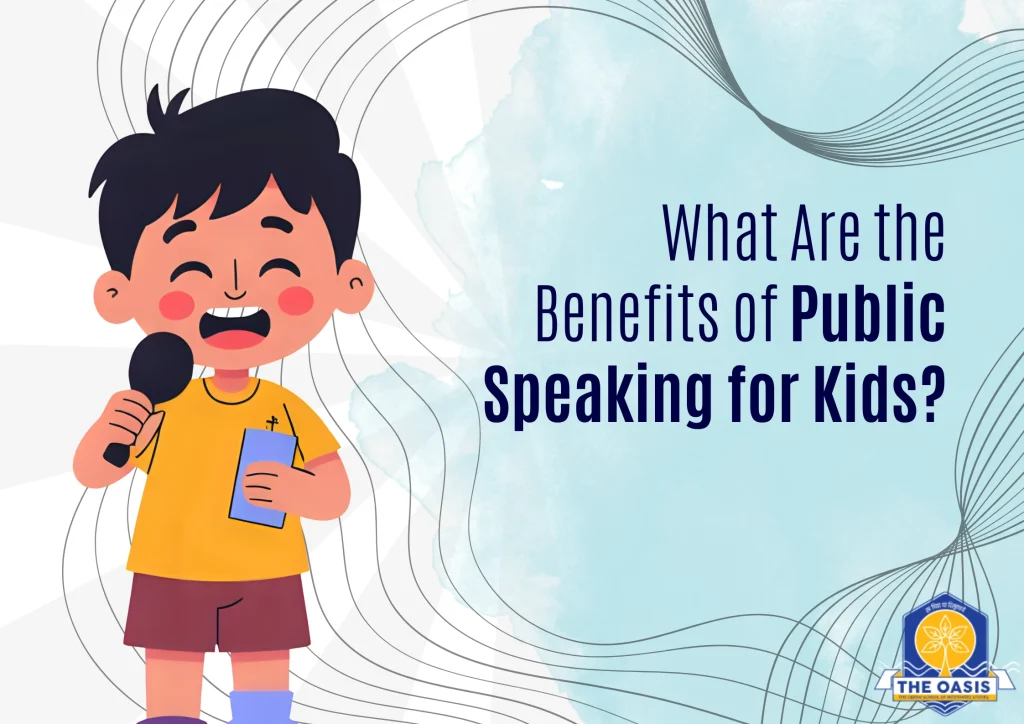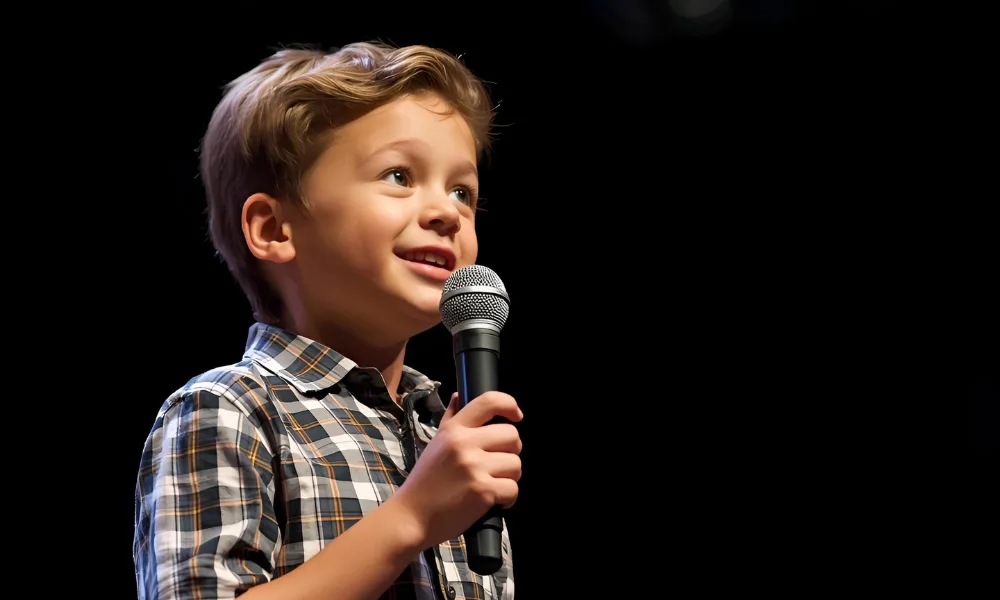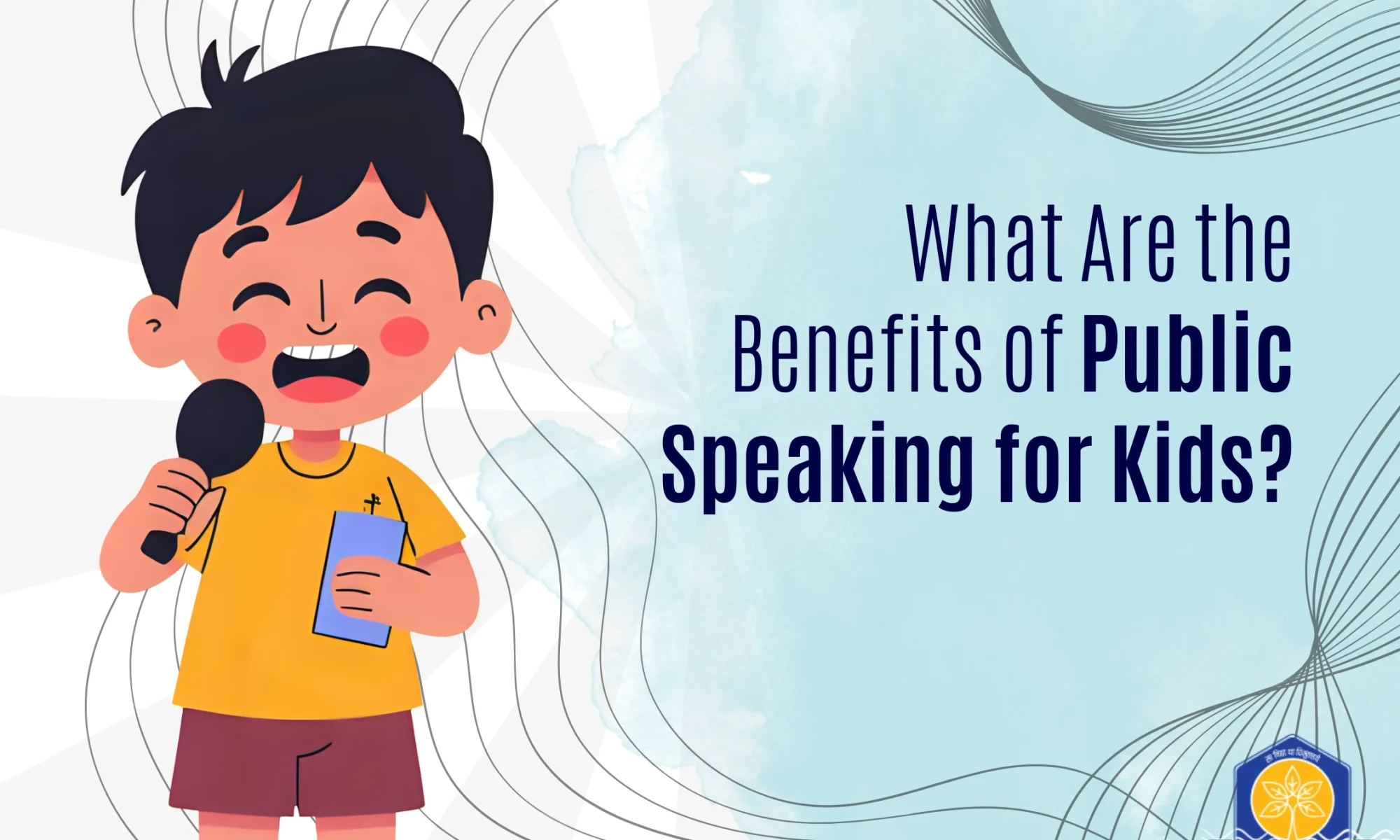
Imagine your child standing tall, speaking clearly, and captivating an audience with confidence. Sounds powerful. That’s the magic of public speaking for kids, a skill that not only boosts self-esteem but also shapes their future in ways most parents don’t realize.
In today’s fast-paced world, communication is key. And the earlier kids learn to express themselves effectively, the better prepared they are for school, friendships, and life beyond the classroom.
The benefits of Public Speaking for Kids:

> Building Confidence Early
One of the most noticeable benefits of public speaking for kids is the surge in self-confidence. Children who talk in front of others learn to manage nerves, think on their feet, and trust their voice. This confidence spills into other areas, whether it’s answering questions in class or making new friends.
Unlike other activities that focus on physical or artistic skills, public speaking directly strengthens emotional resilience and self-belief.
> Enhancing Communication Skills
Public speaking teaches kids how to organize their thoughts and express them clearly. They learn to use tone, body language, and eye contact all essential tools for effective communication. These skills help them not only in school presentations but also in everyday conversations.
Good communication is a lifelong asset, and starting early makes it second nature.
> Boosting Academic Performance
Kids who engage in public speaking often perform better academically. Why? Because they learn to listen actively, process information quickly, and present ideas logically. These skills improve reading comprehension, writing ability, and classroom participation.
Public speaking also encourages curiosity kids ask more questions, explore topics deeply, and become active learners.
> Developing Leadership Qualities
Leadership isn’t just about giving orders it’s about inspiring others. Public speaking for kids nurtures leadership by teaching them how to influence, motivate, and connect with people. Whether leading a group project or speaking at a school event, these experiences build leadership from the ground up.
> Strengthening Critical Thinking
When kids prepare speeches, they learn to research, analyze, and structure their thoughts. They ask themselves: “What do I believe?” and “How can I explain it?” This process sharpens their reasoning and helps them become thoughtful decision-makers.
Public speaking encourages kids to think before they speak a skill that’s valuable in every aspect of life.
> Preparing for Real-World Success
From college interviews to career presentations, public speaking is a skill that pays off for decades. Kids who start early are more comfortable in high-pressure situations and more persuasive in their communication.
It’s not just about speaking it’s about being heard.
Why Public Speaking for Kids Is Better Than Other Activities?
While sports build teamwork and music fosters creativity, public speaking combines emotional, intellectual, and social growth. It’s one of the few activities that directly improves confidence, clarity, and leadership all at once.
Unlike passive hobbies, public speaking actively prepares kids for real-world challenges.
How can parents support Public Speaking at Home?
You don’t need a stage to help your child become a great speaker. Here’s how you can support them:
- Encourage storytelling at dinner or bedtime
- Ask open-ended questions and let them explain
- Celebrate small speaking moments like answering in class or sharing ideas in a group
Creating a safe space where kids feel heard is the first step toward confident speaking.
Frequently Asked Questions (FAQs)
Ques 1. What is public speaking for kids?
Ans. Public speaking for kids refers to teaching children how to express their thoughts clearly and confidently in front of an audience, whether it’s in class, on stage, or during group activities.
Ques 2. What are the long-term benefits of public speaking for kids?
Ans. It prepares them for future leadership, career opportunities, and social interactions by developing strong communication and critical thinking skills.
Ques 3. What are some fun ways to teach public speaking to kids?
Ans. Try storytelling games, role-playing, puppet shows, or recording short videos where they explain something they love.
Ques 4. Can shy kids become good public speakers?
Ans. Absolutely. Many great speakers were once shy. With encouragement and practice, even the quietest child can shine.
Ques 5. What are some common mistakes kids make in public speaking?
Ans. Speaking too fast, avoiding eye contact, or forgetting to breathe are common. but all can be improved with practice.
Ques 6. How do I handle it if my child refuses to speak?
Ans. Don’t force it. Start with low-pressure activities like talking to a mirror or recording themselves at home.




